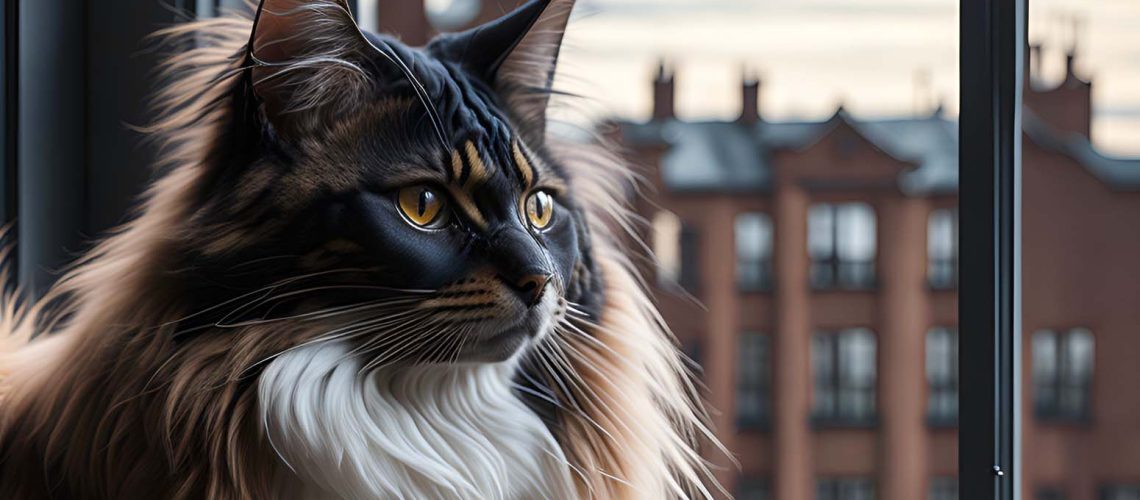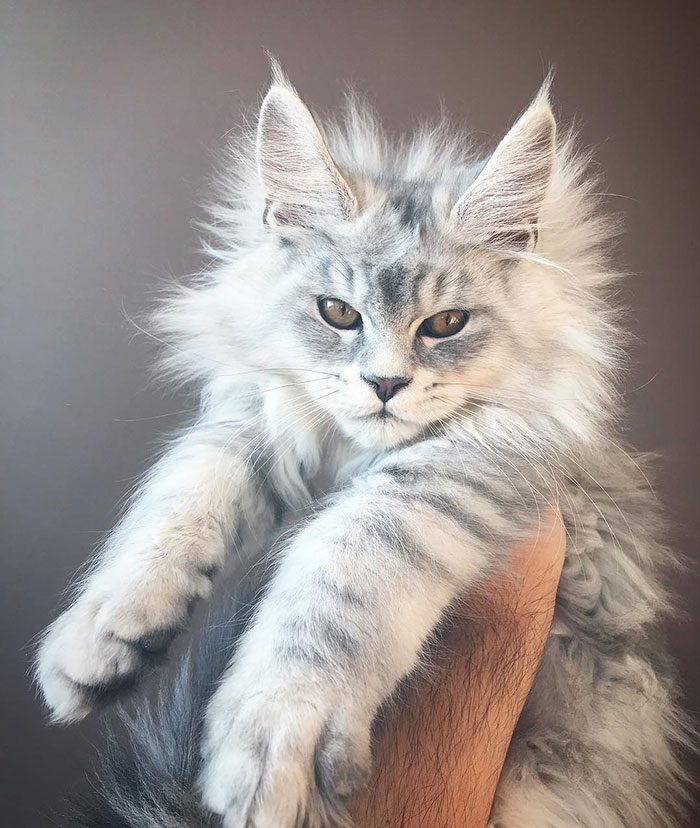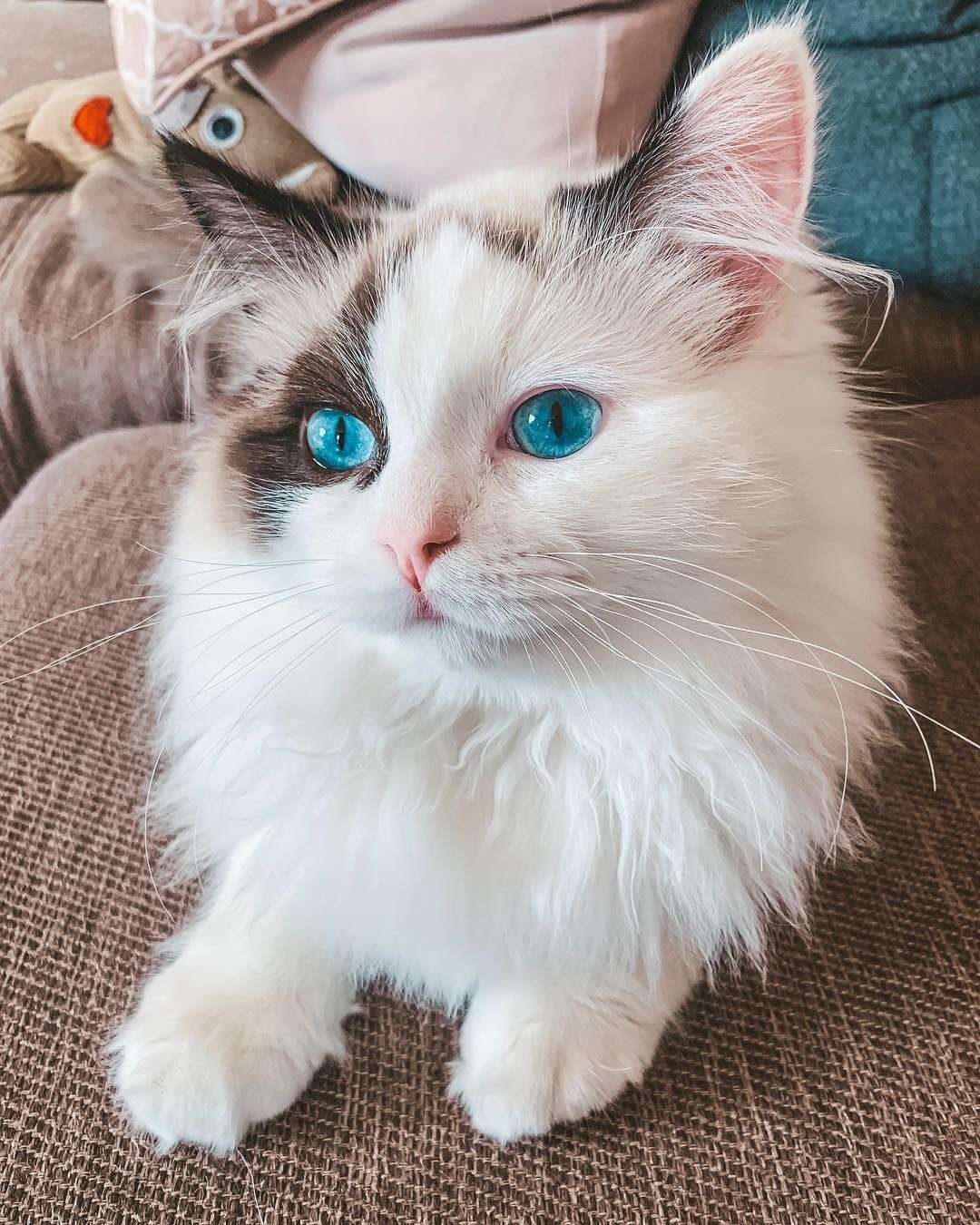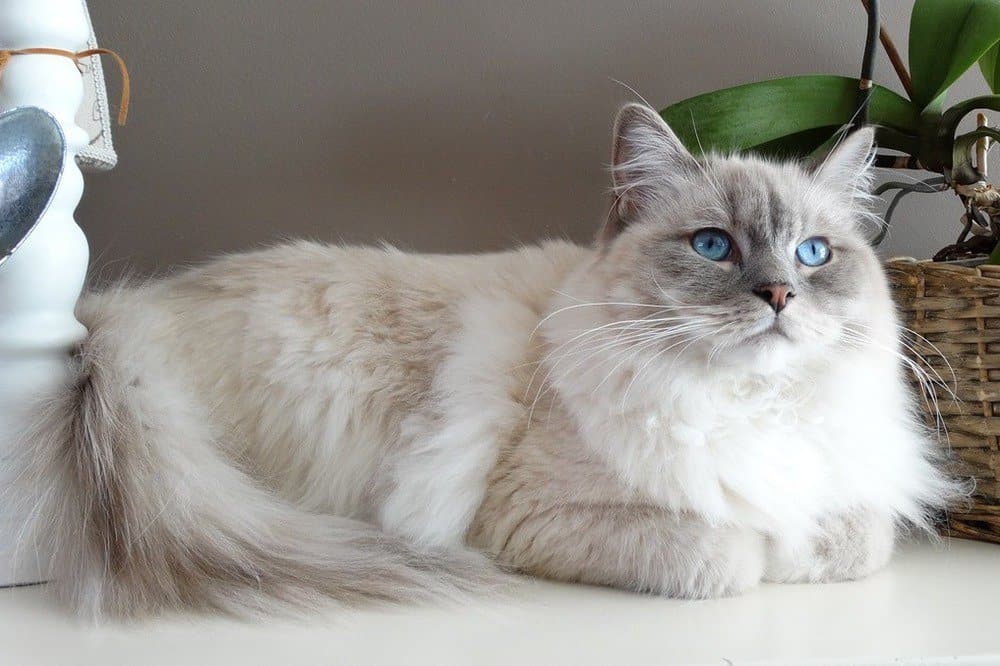Are you a city dweller with a cozy apartment? Do you long for the companionship of a furry friend, but worry about space limitations? Well, fret no more!
In this article, we will explore the best cat breeds that are perfectly suited for apartment living. Discover how these adorable feline companions can bring joy, comfort, and relaxation to your urban lifestyle.
Key Takeaways:
- Some cat breeds are more suited for apartment living due to their lower energy levels and adaptability.
- The Maine Coon is a popular choice for apartments as they are known for their friendly and relaxed nature.
- Ragdolls are another great option for cozy apartments, as they are calm, affectionate, and generally easygoing.
- The British Shorthair is a good choice for apartment dwellers due to their independent nature and low exercise requirements.
- The Russian Blue is an ideal breed for apartments as they are quiet, gentle, and adaptable to various living environments.
Best Cat Breeds for Cozy Apartments
When it comes to finding the perfect feline companion for your cozy apartment, there are a few cat breeds that are known to thrive in smaller living spaces. One such breed is the American Shorthair. These cats are not only low-maintenance, but they also adapt well to indoor environments. Their calm and independent nature makes them ideal for apartment living.
Another great option is the Russian Blue. Known for their gentle and reserved personalities, Russian Blues are content with lounging around and don't require a lot of space. They are also hypoallergenic, making them a suitable choice for those with allergies.
1. American Shorthair
The American Shorthair is a medium-sized cat breed that originated in the United States. They have a sturdy build and come in various colors and patterns. This breed is known for its friendly and easygoing nature, making them excellent companions for apartment dwellers.
2. Russian Blue
The Russian Blue is a beautiful cat breed with striking blue-gray fur and mesmerizing green eyes. They have a calm and gentle temperament, making them well-suited to apartment living. Russian Blues are also known to be intelligent and curious, which can provide entertainment in smaller spaces.
How Having a Cat in a Small Apartment Improves City Life
Having a cat in your small city apartment can bring numerous benefits to your life. First and foremost, cats provide companionship and emotional support. Living alone in a bustling city can sometimes feel lonely, but having a furry friend by your side can alleviate those feelings of isolation.
Cats also have a calming effect on their owners. The act of stroking their soft fur has been proven to reduce stress and anxiety. In a fast-paced city environment, this can be especially beneficial for your overall well-being.

1. Companionship
Cats are known for their independent nature, but they still form strong bonds with their owners. Coming home to a loving and affectionate cat can provide a sense of comfort and companionship, making your small apartment feel like a warm and inviting space.
2. Stress Relief
Living in a city can be hectic and overwhelming at times. However, studies have shown that interacting with cats can lower blood pressure and reduce stress levels. Simply spending time playing or cuddling with your cat can help you unwind after a long day in the bustling city.
Characteristics to Look for in Cat Breeds Suitable for Apartment Living
When choosing a cat breed that is suitable for apartment living, there are certain characteristics to consider. These traits will ensure that your furry friend is happy and comfortable in your small living space.
1. Low Energy Level
Cats with low energy levels are better suited for apartments since they don't require as much space to roam and play. Look for breeds that are known to be more laid-back and content with indoor activities.
2. Independent Nature
An independent cat breed will be able to entertain themselves when you're not around or busy with work or other commitments. Cats that don't rely heavily on constant attention will fare better in smaller living spaces where they may need to occupy themselves at times.
List of Characteristics:
- Low energy level
- Independent nature
- Affectionate but not overly demanding
- Adaptable to indoor environments
- Good with limited exercise opportunities
- Quiet and not prone to excessive vocalization
Cat Breeds that are Adaptable to Urban Environments
Living in an urban environment presents unique challenges for cat owners. However, there are several cat breeds that have proven to be adaptable and thrive in city settings.
1. Siamese
The Siamese cat breed is known for its intelligence and sociable nature. They adapt well to apartment living as long as they receive enough mental stimulation and playtime. Siamese cats are also highly vocal, which can be a plus or minus depending on your preference.
2. Abyssinian
Abyssinians are active and playful cats that can adapt well to smaller living spaces. They enjoy climbing and exploring their surroundings, so providing vertical spaces like cat trees or shelves can help keep them entertained in your urban apartment.
Can Cats be Happy in Small Apartments?
Cats can indeed be happy in small apartments if their physical and emotional needs are met. While cats may not require as much space as dogs, they still need mental stimulation, exercise, and a comfortable environment to thrive.
To ensure your cat's happiness in a small apartment, provide them with plenty of toys, scratching posts, and vertical spaces where they can climb or perch. Regular play sessions will also help keep them physically active and mentally stimulated.
Tips for Keeping City Apartment Cats Stimulated:
- Create vertical spaces with shelves or cat trees for climbing and perching
- Provide interactive toys that stimulate their hunting instincts
- Set up a window perch so they can watch the outside world
- Rotate their toys regularly to keep them engaged
- Engage in regular play sessions to keep them physically active
Challenges and Considerations of Owning a Cat in a City Apartment
While owning a cat in a city apartment can be rewarding, there are some challenges and considerations to keep in mind.
One challenge is the limited space available for your cat to roam and explore. It's important to provide vertical spaces and interactive toys to ensure they stay mentally stimulated and don't become bored or frustrated.
Noise can also be an issue in city apartments, especially if you live in a busy area. Some cats may be more sensitive to loud noises, so it's important to create a calm and quiet environment for them.
List of Challenges:
- Limited space for roaming and exploring
- Noise from the city environment
- Potential lack of outdoor access
- The need for regular litter box maintenance
- Finding pet-friendly housing options
Challenges and Considerations of Owning a Cat in a City Apartment
Space Limitations
Living in a city apartment often means dealing with limited space, which can pose challenges when it comes to owning a cat. Cats are naturally curious and active animals, so they need room to explore and play. In a small apartment, it may be difficult to provide enough space for your feline friend to roam freely. This can lead to boredom and frustration for the cat, which may result in behavioral issues such as scratching furniture or excessive meowing.
Solutions:
To overcome this challenge, there are several solutions you can consider. First, make use of vertical space by installing shelves or cat trees that allow your cat to climb and perch high up. This not only provides them with exercise but also gives them a sense of territory. Additionally, create designated play areas where your cat can engage in interactive play with toys or puzzle feeders. Finally, consider setting up window perches or bird feeders outside the windows to give your cat some entertainment and mental stimulation.
Limited Access to Outdoor Space
Another consideration when owning a cat in a city apartment is the limited access to outdoor space. Cats are natural explorers who enjoy spending time outdoors, but living in an apartment may restrict their ability to do so safely. Without proper outdoor access, cats may become restless and exhibit signs of pent-up energy.
Solutions:
To address this challenge, you can create an indoor environment that mimics the outdoors as much as possible. Provide your cat with scratching posts or pads to satisfy their natural urge to scratch and stretch. Set up window perches near sunny spots so they can bask in the sunlight and observe the outside world. Additionally, consider harness training your cat so you can take them for supervised walks outside. This allows them to experience the sights, sounds, and smells of the outdoors while keeping them safe from potential dangers.
Noise and Distractions
Living in a city apartment often means dealing with noise and distractions that can be overwhelming for a cat. Loud traffic, sirens, and neighbors' activities can cause stress and anxiety in cats, affecting their overall well-being.
Solutions:
To help your cat cope with noise and distractions, create a quiet and safe space within your apartment where they can retreat to when they feel overwhelmed. This can be a cozy corner with their bed or a covered hiding spot. Use white noise machines or calming music to drown out external noises that may disturb your cat. Additionally, provide plenty of interactive toys and engage in regular play sessions to keep their minds occupied and focused on positive activities.
By addressing these challenges and considerations, you can ensure that owning a cat in a city apartment is a rewarding experience for both you and your feline companion. Remember to prioritize their physical and mental well-being by providing them with ample space, stimulating environments, and opportunities for relaxation.
In conclusion, when it comes to choosing a cat breed for cozy apartments in the city, it is important to consider their adaptability, size, and temperament. Breeds like the Ragdoll, British Shorthair, and Maine Coon are great options as they are known for being calm, affectionate, and well-suited for indoor living.
Can cats live comfortably in an apartment?
According to Mary Tan from Whisker Media, cats can be happy living in apartments. The size of the space is not as important as the amount of enrichment and attention they receive, regardless of their breed. Many people mistakenly believe that cats are like pieces of furniture and don't require anything else.
Is it better to have one or two cats in an apartment?
Owning multiple cats in a small apartment can be beneficial as they can provide companionship for each other. However, it is important to consider if you can meet the needs of both cats before making the decision. One thing to keep in mind is that you will have to maintain two litter boxes.
Will a cat get bored in an apartment?
Apartment-dwelling cats often experience a significant threat, which is boredom.
What does an apartment cat need?
Offer multiple scratching posts in various areas to allow cats to mark their territory, strengthen their muscles, and sharpen their claws. Keep them engaged by providing opportunities for daily exercise to maintain their overall well-being and invent new ways to keep them physically and mentally stimulated.
Can cats be left alone in apartment?
If there is access to fresh water, certain cats can be left unattended for a maximum of 24 hours. However, leaving them alone for longer durations or on a regular basis, such as entire days or nights, can be more unsettling for them. It is not recommended to leave your cat alone for extended periods of time.
How can I make my cat comfortable in my apartment?
By providing your cat with designated spaces for climbing, scratching, and relaxing, you can greatly improve both your own and your cat's quality of life. Cat trees and climbing structures offer a suitable outlet for your cat's natural behaviors and help prevent them from damaging your personal belongings or the fixtures in your apartment.

















